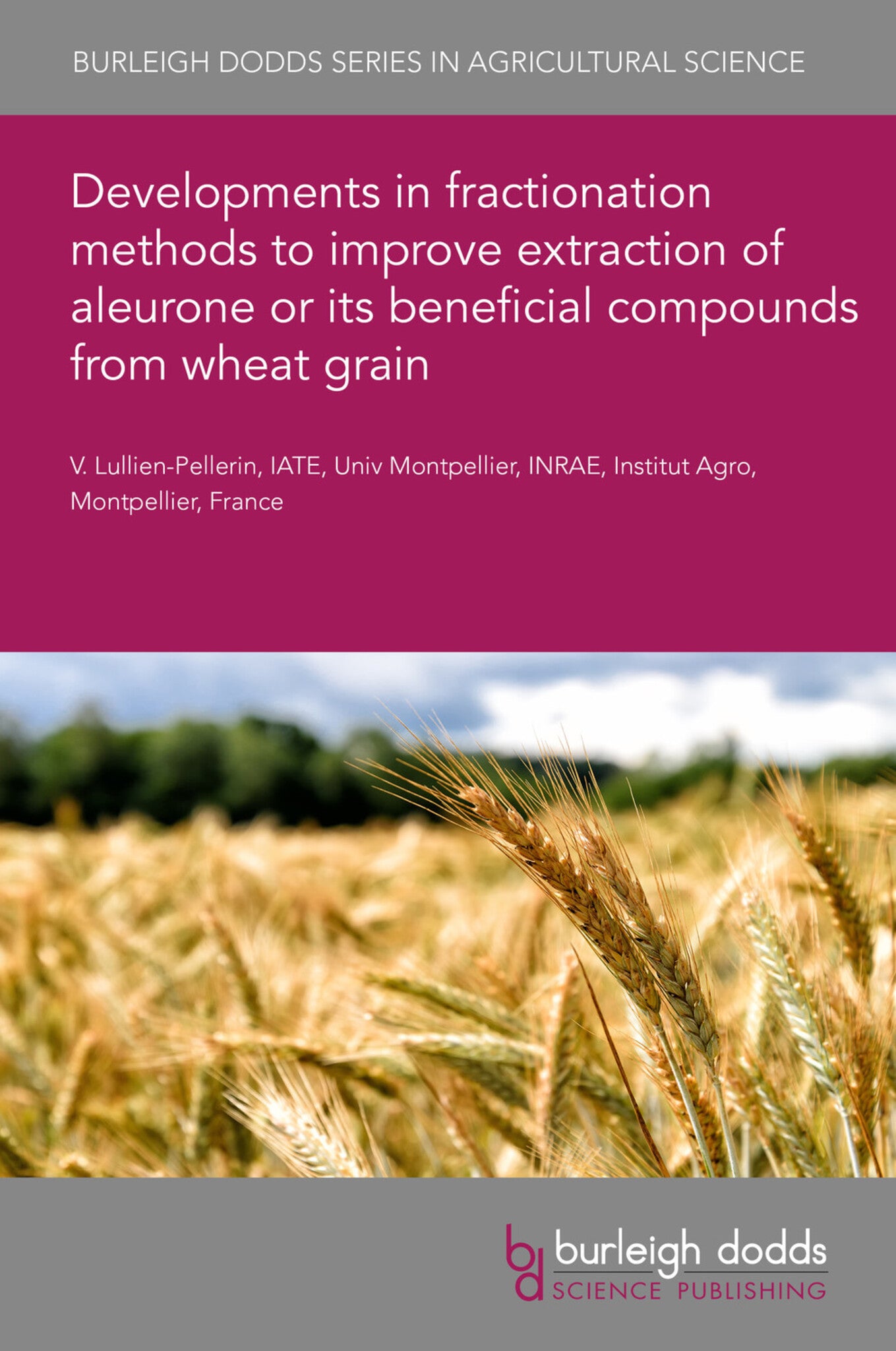We're sorry. An error has occurred
Please cancel or retry.
Developments in fractionation methods to improve extraction of aleurone or its beneficial compounds from wheat grain
Regular price
£25.00
Sale price
£25.00
Regular price
£0.00
Unit price
/
per
Sale
Sold out
Re-stocking soon
In wheat grains, the aleurone layer is located between the peripheral tissues and the starchy endosperm and is rich in soluble proteins, minerals, lipids, vitamins and micronutrients and contains s...
Read More

Some error occured while loading the Quick View. Please close the Quick View and try reloading the page.
Couldn't load pickup availability
- Format:
-
10 May 2021

In wheat grains, the aleurone layer is located between the peripheral tissues and the starchy endosperm and is rich in soluble proteins, minerals, lipids, vitamins and micronutrients and contains several compounds with antioxidant activities. However, along grain fractionation it is mainly recovered in bran fractions, generally used to feed animals or for energy production. These last few years, the cereal scientist community and companies developed research and new processing technologies (mainly protected with patents) in order to more deeply exploit its potential. This was mainly based on a better knowledge of its composition and properties helped by a better monitoring of its behaviour along milling, debranning and further isolation. This chapter summarizes main strategies for aleurone layer isolation and pinpoints out how its cell walls or cellular content may be of interest to obtain. It also highlights potential drawbacks, synergistic effect of different compounds, question of bioavailability and possible future trends.

Price: £25.00
Publisher: Burleigh Dodds Science Publishing
Imprint: Burleigh Dodds Science Publishing
Series: Burleigh Dodds Series in Agricultural Science
Publication Date:
10 May 2021
ISBN: 9781801461559
Format: eBook
BISACs:
TECHNOLOGY & ENGINEERING / Agriculture / Agronomy / Crop Science, Agronomy and crop production, TECHNOLOGY & ENGINEERING / Agriculture / Sustainable Agriculture, Sustainable agriculture, Agricultural science

1 Introduction 2 Aleurone layer isolation from bran fractions 3 Aleurone isolation by abrasion from wheat grain 4 Aleurone cell-wall components release: fibres and antioxidant properties 5 Aleurone cell content release 6 Conclusion and future trends 7 Where to look for further information 8 References



